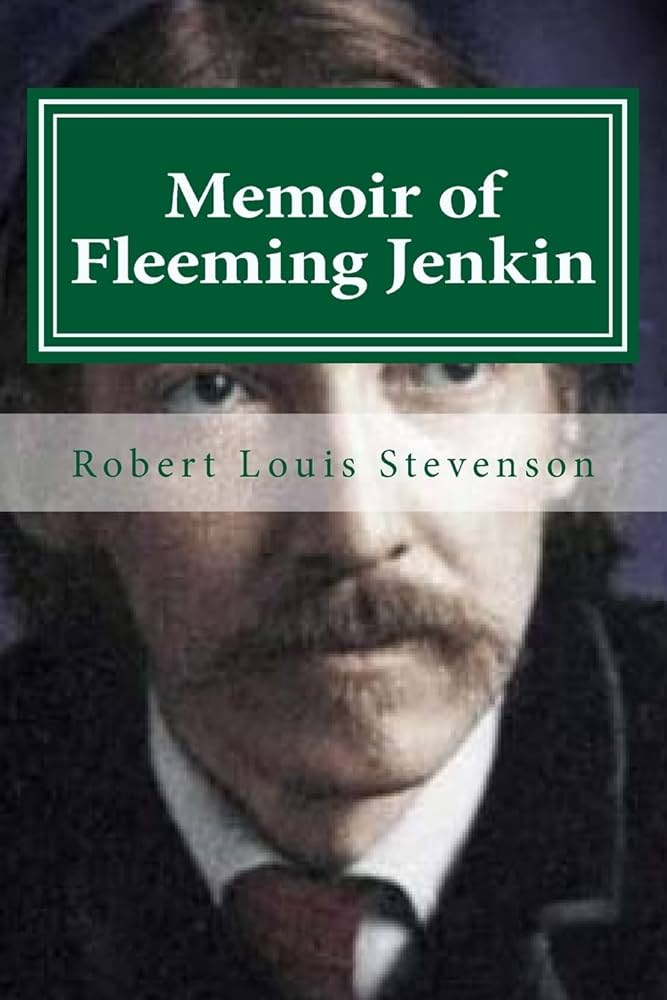Chapter III — The memoir of Fleeming Jenkin
byChapter III — The memoir of Fleeming Jenkin reveals a man whose pursuit of excellence extended into every facet of life, from work to relationships. Jenkin was known for holding high standards and expecting the same from others, including his closest family. This intensity, though intimidating at first—particularly for his wife, who came from a more relaxed educational environment—soon became a source of strength. Those around him found that this demand for quality led to personal growth, mutual respect, and, over time, warm, trusting relationships. What once felt like pressure turned into inspiration.
His dedication showed no distinction between personal interests and public service. Whether designing a Greek garment or tackling urban sanitation problems, Jenkin applied the same level of attention and enthusiasm. He took particular interest in sanitary engineering, not for prestige but from a desire to improve public health standards. Prompted by the preventable deaths of children in a local tragedy, he poured energy into reform. He believed practical engineering could guard against the failings of shoddy construction and corrupt practices, particularly in plumbing. His initiative, though initially focused on wealthier districts, sparked the formation of Sanitary Associations that brought real improvements wherever they took root.
Despite his serious motivations, Jenkin approached even somber causes with a lighthearted spirit. He found ways to maintain a sense of humor and hope, even when addressing life-or-death matters. His unique strength was in balancing grief with action—turning sorrow into motivation rather than despair. In his view, making something good and accessible meant it would surely be embraced by others. He often assumed that well-crafted ideas would gain universal support, only to feel disheartened when reality proved otherwise. But even in disappointment, his belief in the potential for progress rarely faded. This resilience formed the backbone of his civic work and personal philosophy.
Jenkin’s perspective on human nature was marked by deep optimism. He was reluctant to label anyone as truly wicked, instead believing that harmful behavior came from emotional weakness or an inability to understand others. Conversations about ethics often revealed this trait—he resisted the idea that evil could exist without cause. Instead, he maintained that compassion and better insight could resolve most human failings. However, one particular exchange with a close friend challenged this stance. Pressed to acknowledge the darker side of human behavior, Jenkin finally conceded that true malice might exist—but only with visible discomfort. This moment exposed the depth of his faith in human decency and his emotional struggle to accept cruelty without justification.
Such convictions influenced not only his personal life but also his approach to leadership. As a mentor and collaborator, Jenkin pushed those around him to stretch their abilities, not through command but by example. He modeled the kind of rigor and imagination he wanted others to adopt, making his expectations feel like an invitation rather than a demand. His colleagues and students responded not out of fear but from a desire to match his sincerity. Even those who initially resisted his methods came to value his integrity and the purpose behind his intensity. Through these dynamics, Jenkin cultivated environments of learning and improvement wherever he worked.
His ability to find joy in discipline made him both admired and beloved. People trusted that his criticism was rooted in a genuine desire to help them grow. They recognized that his high standards came with equal measures of encouragement and support. The passion he brought to his projects inspired loyalty. Whether in engineering circles or community initiatives, Jenkin stood out not just for intellect but for the emotional weight he brought to every task. His ability to unify head and heart was what made him truly memorable. In the end, his legacy wasn’t just technical progress—it was the relationships and renewed hopes he left behind.


